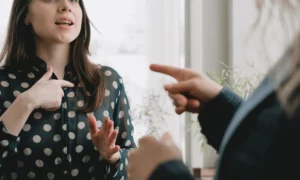Jobyna Watts, 92, inherited her husband Eustace Watts’ estate when he died in 2008, while their son, Carlton, did not receive anything.
Carlton, aged 64 took his mother, a former dancer at Windmill Theatre, to court, claiming that his Father’s Will which left everything to Mrs Watts and nothing to him was forged. He claimed that an earlier Will was the true last testament.
Mr Watts claims a previous will from 1994, which split his father’s estate between himself, his mother and his brother Fraser Watts was his father’s last true will.
The High Court heard of increasing resentment and unpleasantness between the mother and son over the Will, with Mr Watts reported to have put a large notice on his car writing: “Jobyna Watts forged her husband’s Will and stole his money.”
Mr Watts referred to a forensic witness who claimed the “pen pressure of the solicitor’s and witness’s signatures are very similar” and the “angle of letter formation” on Eustace’s signature was like Mrs Watts’ signature. However, a Solicitor had witnessed Eustace’s 2000 Will and had reported remembering him as “a long-standing client of the firm” and therefore could vouch that it was not forged.
“My evaluation of Carlton’s evidence is that he holds a fixed belief that his mother has dishonestly and unfairly deprived him of his entitlement to his father’s estate, and that this has coloured and distorted his view of the factual matters relevant to this case,” ruled Master Julia Clark.
For this reason, the Judge did not consider him a credible witness, and only accept his evidence when supported by independent concurrent documentation. Whilst the case remains open, no hearings are currently listed.
At Davisons Law, we can assist with challenging the validity of a Will and inheritance claims.
You may be able to challenge the validity of a Will on the following grounds:
- Lack of mental capacity – This may apply if the person who made the Will did not have the mental understanding required to make a Will.
- Lack of knowledge – If the person’s first language was not English, for example, they may not have fully understood and approved the terms of their Will, which could invalidate it.
- Undue influence – If the person was somehow forced or coerced into making a Will by another person.
- Lack of due execution – A Will is invalid if it has not been properly signed in the presence of two or more witnesses and properly executed as required under the Wills Act 1837.
- Fraud – If any part of the Will has been forged, it will be invalid.
If you need assistance with contesting a Will and inheritance claims, please get in touch with one of our expert Disputes and Litigations Solicitors today on 0121 820 0112.


